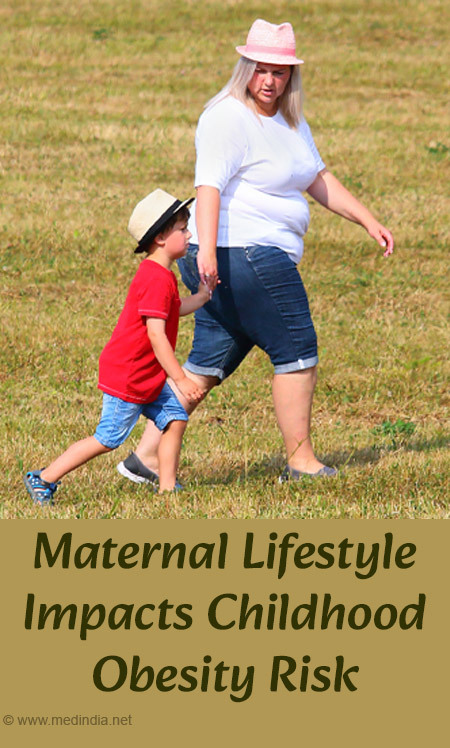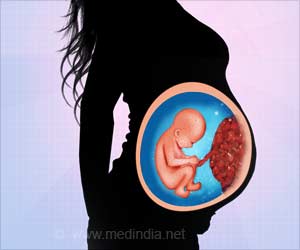Maternal smoking or obesity increases a child's risk of adult obesity.
- Maternal obesity significantly raises a child's risk of adult obesity
- Smoking during pregnancy doubles the likelihood of childhood obesity
- Early-life factors can influence weight well into adulthood
Sociodemographic and early-life predictors of being overweight or obese in a middle-aged UK population- A retrospective cohort study of the 1958 National Child Development Survey participants
Go to source). The findings highlight the long-term impact of early-life exposures on adult health. The researchers observed that maternal influence remained equally strong before and after the onset of the obesity epidemic, indicating that the risk factors are persistent over time.
Maternal obesity or smoking raises the risk of adult obesity by over 2X. #ChildObesity #MaternalHealth #medindia’
How Maternal Obesity and Smoking Influence Child Weight
Obesity has complex origins, influenced by genetics, lifestyle, and environment. However, this study reveals that maternal factors can significantly increase a child's risk of becoming obese later in life.Long-Term Consequences of Maternal Obesity
The study showed that children born to mothers with obesity were far more likely to develop weight issues by their teen and adult years. This increased risk persisted through age 42, indicating that maternal weight can have a lifelong impact.
- Persistent Risk: The study demonstrated that maternal obesity remained a strong predictor of child obesity, regardless of the rise in UK obesity rates over the decades.
- Multigenerational Impact: These findings suggest that maternal weight status could influence obesity patterns across generations.

The Link Between Maternal Smoking and Obesity
Smoking during pregnancy is already linked to low birth weight and developmental issues. This study adds another layer of concern, showing that it also raises the risk of long-term obesity in children.
- Higher Obesity Rates: Children of mothers who smoked were more likely to be obese or severely obese at ages 16 and 42.
- Lasting Influence: The data indicated that maternal smoking had a consistent effect on obesity risk, regardless of the individual’s behaviors or changing societal conditions.
Key Findings From the Study
The comprehensive analysis offers compelling insights:- Increased Risk of Obesity: Children of mothers who smoked or were obese were significantly more likely to become overweight or obese at each age examined.
- Long-Lasting Impact: The maternal influence on obesity risk persisted well into middle age, demonstrating its enduring effect.
- Consistent Risk Before and After the Epidemic: Surprisingly, the influence of maternal obesity and smoking was just as strong before the obesity pandemic as after it began, suggesting that individual risk factors have remained constant despite rising obesity rates.
Why Early-Life Factors Matter in Obesity Prevention
The study's findings underscore the need for early intervention strategies in preventing obesity. Addressing maternal health behaviors—such as promoting healthy weight management and discouraging smoking during pregnancy—could significantly reduce obesity rates in future generations.Potential Preventive Measures
- Maternal Health Programs: Educating expectant mothers about the long-term health impact of their weight and smoking habits.
- Nutritional Support: Providing dietary counseling and support for healthy weight management during and after pregnancy.
- Smoking Cessation Programs: Offering targeted support to pregnant women who smoke to lower the associated health risks for their children.
Promoting maternal health could be the key to breaking the cycle of obesity and creating healthier futures for generations to come.
Reference:
- Sociodemographic and early-life predictors of being overweight or obese in a middle-aged UK population– A retrospective cohort study of the 1958 National Child Development Survey participants - (https://journals.plos.org/plosone/article?id=10.1371/journal.pone.0320450)
Source-Medindia
















